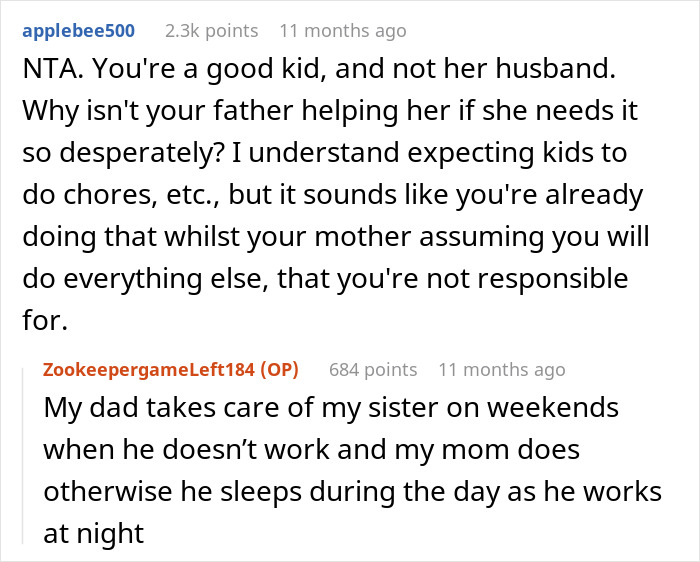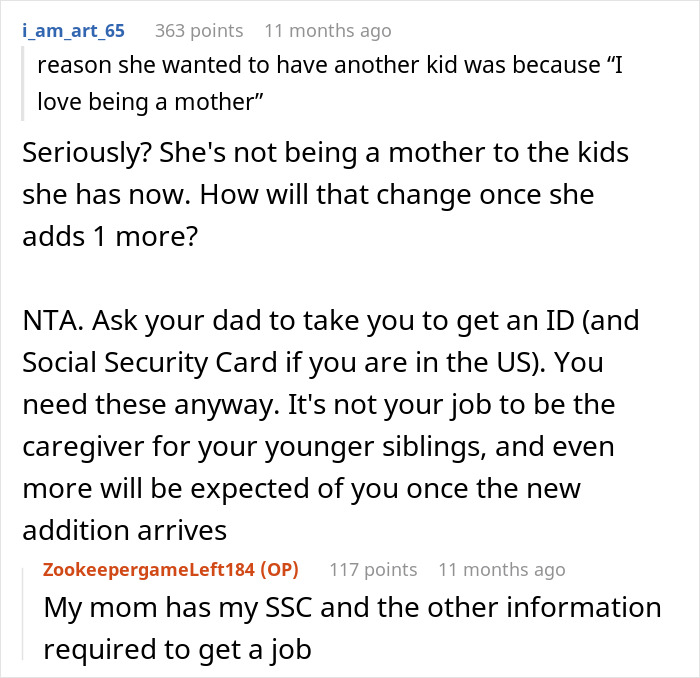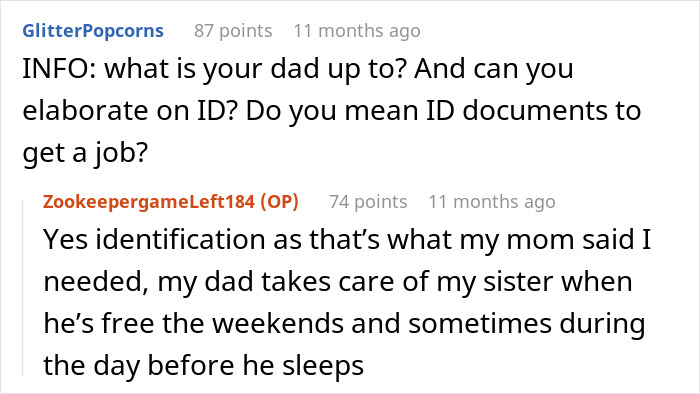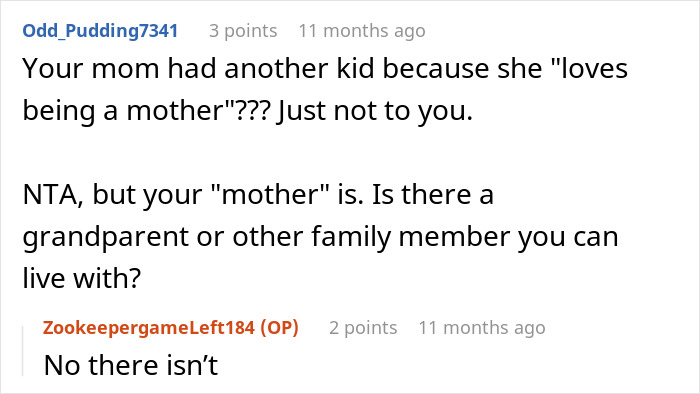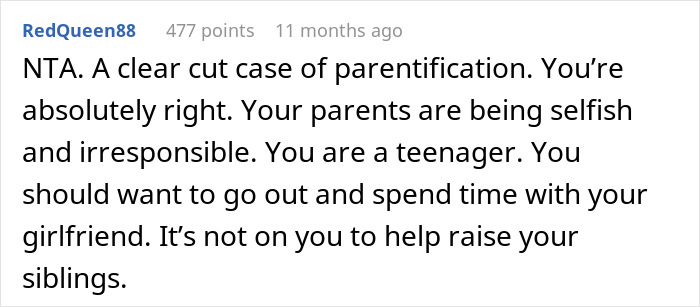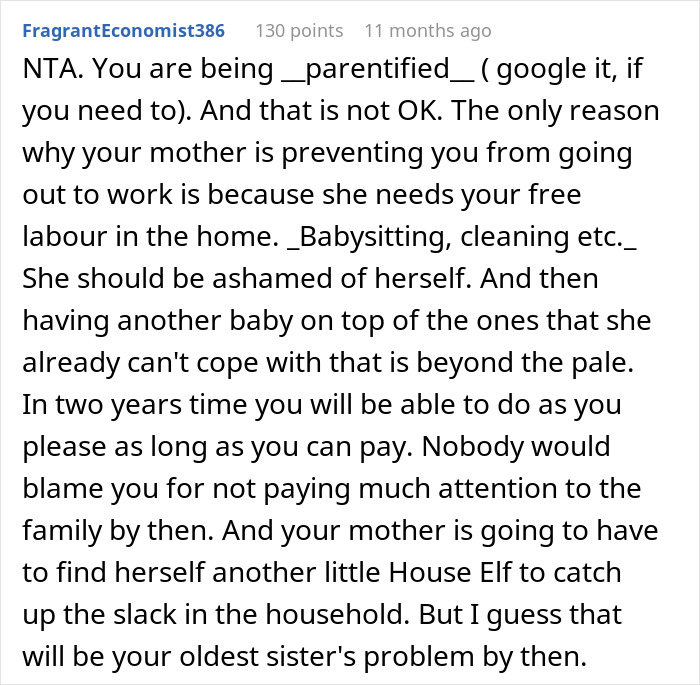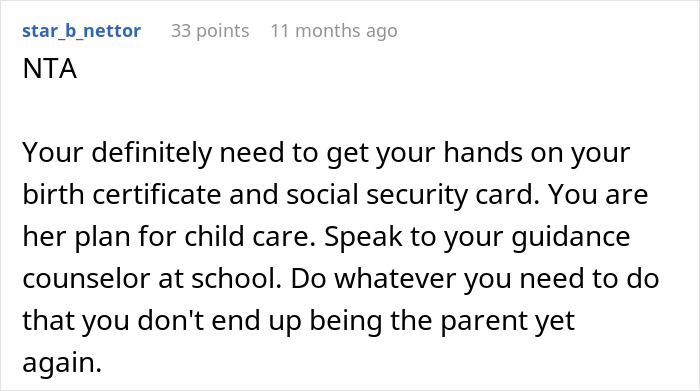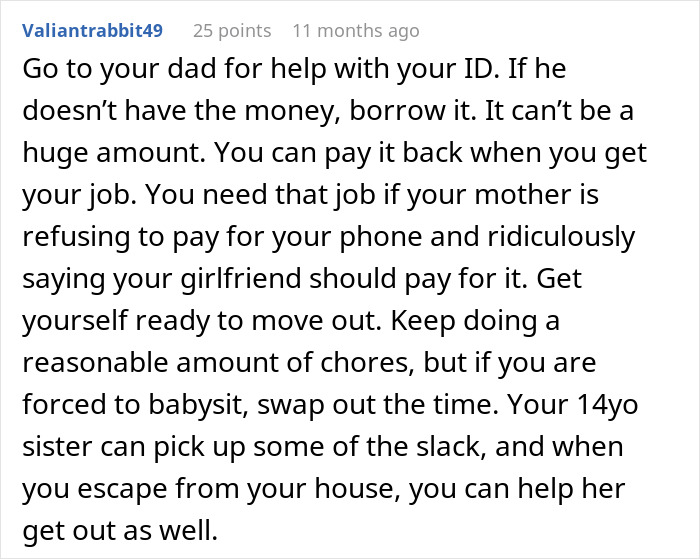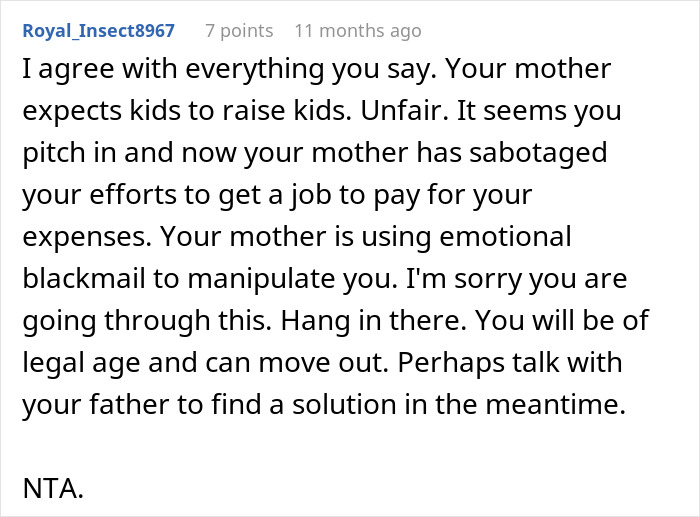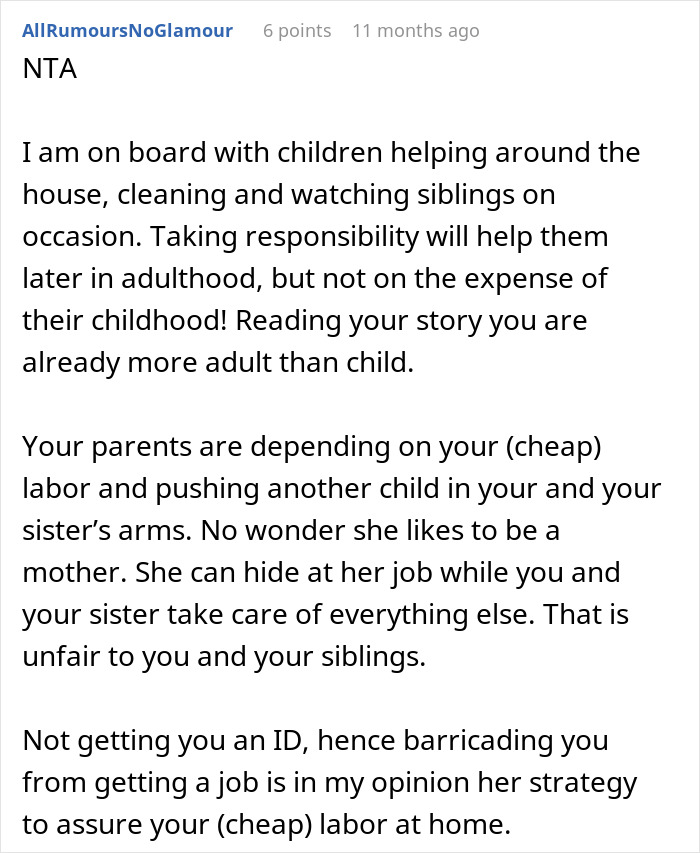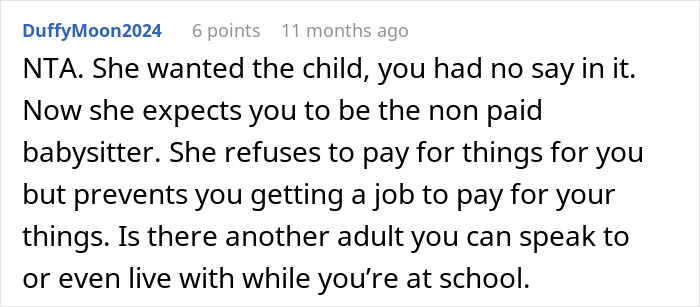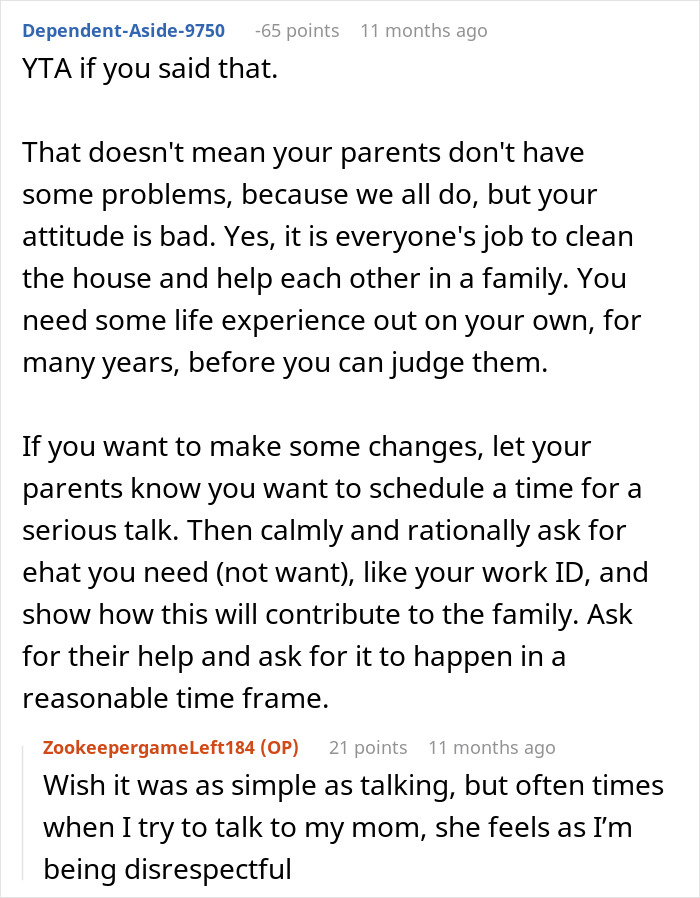Childhood should be all about growing, learning, and having fun. However, not all parents can afford to provide the stability and resources needed for such a childhood. Some may even rely on their kids for help, urging them to take over their responsibilities like childcare, housework, and money earning.
This teenager found himself in a similar situation, frequently taking care of his siblings and home, as both parents worked long hours, trying to catch up on bills. But the last straw for him was his mom getting pregnant with another child, which pushed him to provide her with a reality check.
Scroll down to find the full story and a conversation with Dr. Jennifer Toof, therapist and owner of Trauma Informed Counseling and Consulting, Dr. Maya Weir, clinical psychologist and founder of Thriving California, and Gayle Weill, a licensed psychotherapist, who kindly agreed to tell us how children can be affected when they take over parental responsibilities.
Not all parents can afford to provide children with the childhood they deserve

Image credits: Sébastien Mouilleau / Unsplash (not the actual photo)
Just like these parents, who, despite not being able to afford or take care of their already existing children, are still having more kids
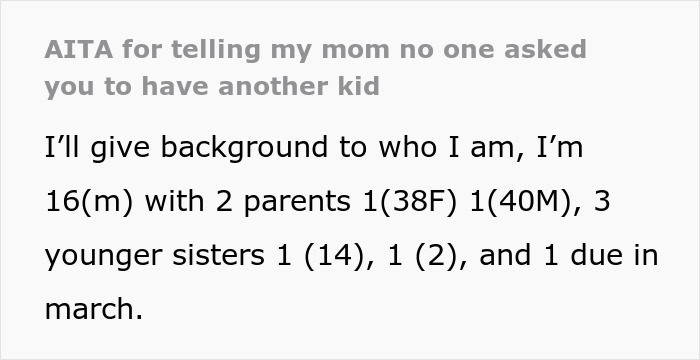
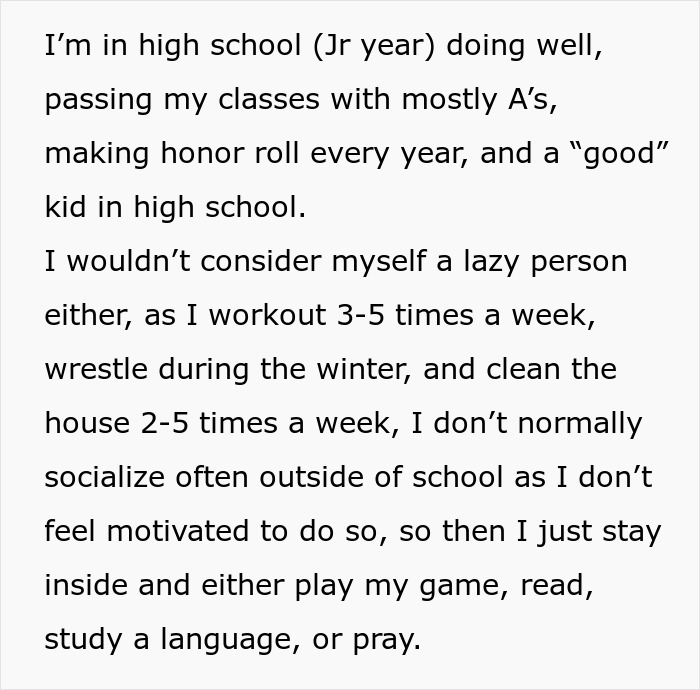
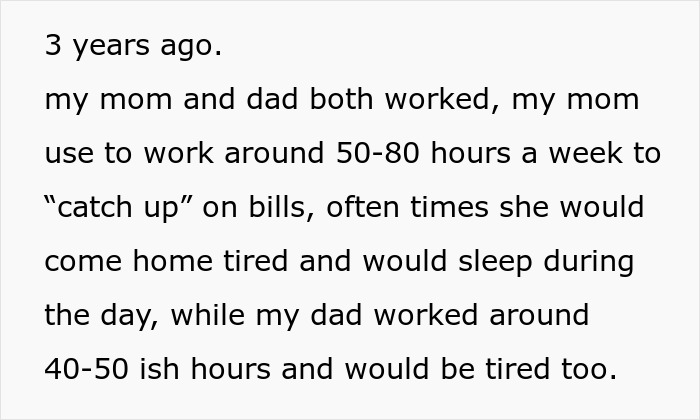
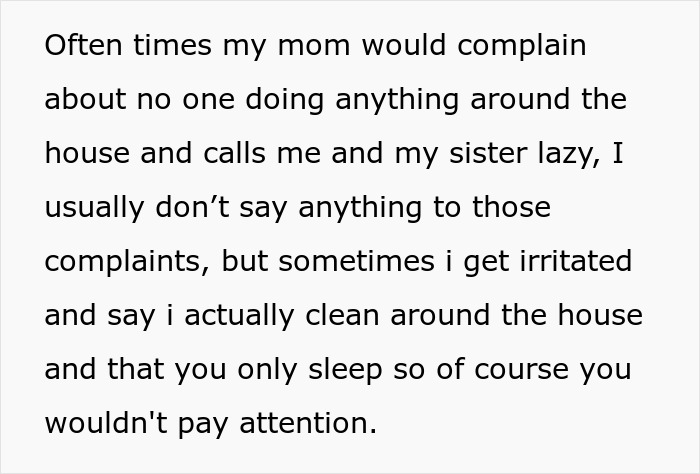

Image credits: Getty Images / Unsplash (not the actual photo)
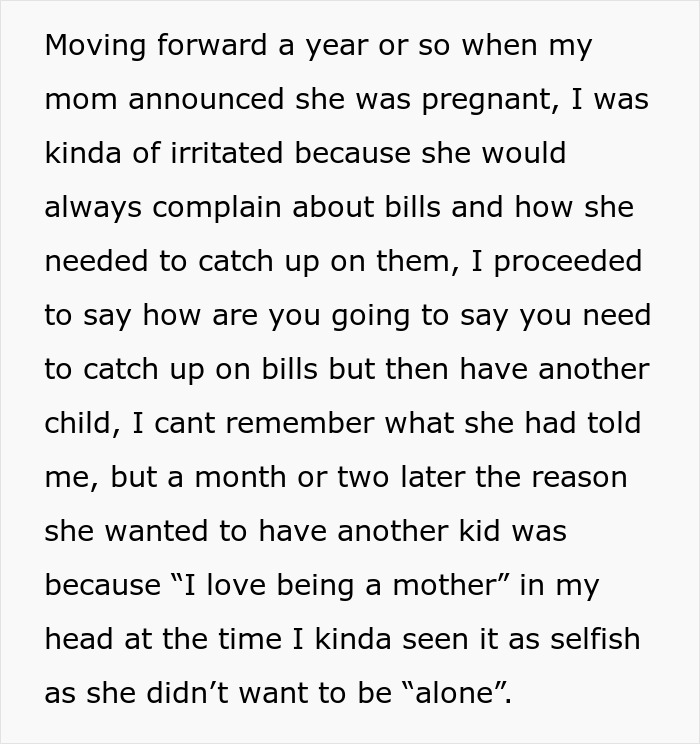
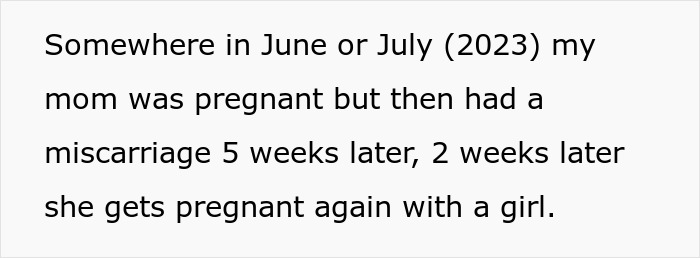
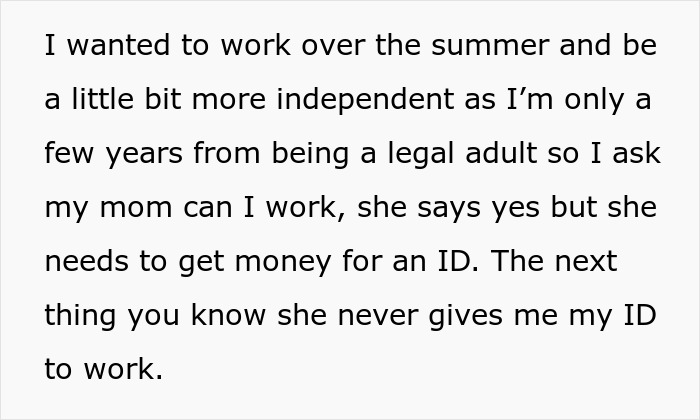
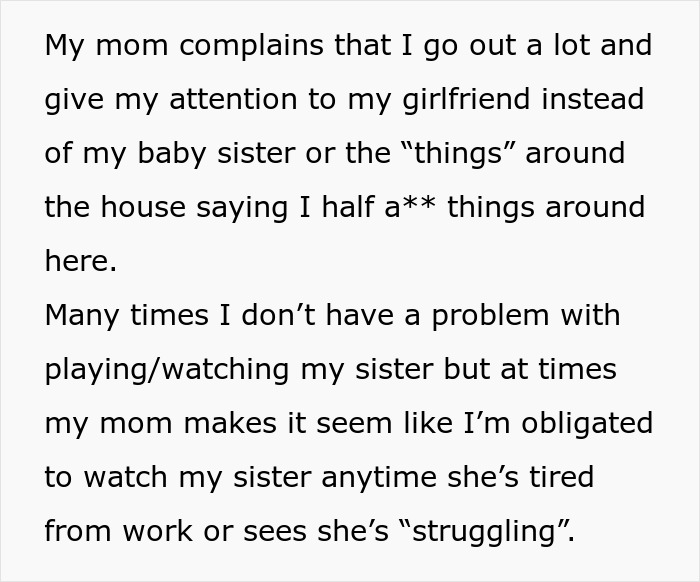


Image credits: Daniel Martinez / Unsplash (not the actual photo)
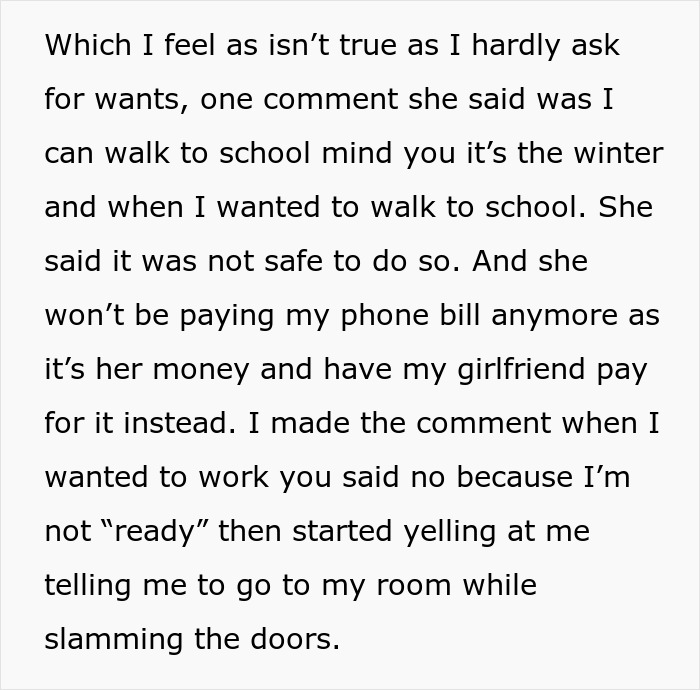
Image credits: ZookeepergameLeft184
“Children taking over adult responsibilities before they are ready to do so is often referred to as adultification or parentification”
“Children taking over adult responsibilities before they are ready to do so is often referred to as adultification or parentification,” explains Dr. Jennifer Toof, therapist and owner of Trauma Informed Counseling and Consulting. “Essentially, they become the caregiver to parents or younger siblings. It can indeed be considered a form of trauma, particularly in extreme cases, with both short- and long-term effects.”
Momentary effects can include elevated stress, anxiety, depression, difficulty regulating emotions, and behavioral problems, says Dr. Toof. In the long term, children who were parentified are more likely to struggle with relationships. They might particularly find it difficult to set boundaries, trust others and avoid unhealthy relationships. They’re also at higher risk of experiencing physical and mental health issues like anxiety, depression, eating disorders, and substance use disorders.
“It can lead to arrested development, where children miss out on critical stages of growth, such as building social skills or exploring their identity,” adds Gayle Weill, a licensed psychotherapist.
However, Dr. Maya Weir, clinical psychologist and founder of Thriving California, notes that children can thrive when given responsibilities at home, but they have to be age-appropriate and not overwhelming. “It makes them feel like participants and that the family is working as a team. However, if children are given too many tasks or tasks that are not appropriate for their age, this is when mental health issues will occur.”
Parents don’t always pass over their responsibilities to children intentionally

Image credits: Sandra Seitamaa / Unsplash (not the actual photo)
Experts say that parents don’t always pass over their responsibilities to children intentionally. They might do this because they are overwhelmed, lack support and can’t afford resources like childcare or house cleaners. “They may feel that they have no choice but to pass responsibilities over to their children. Oftentimes, parents are working long hours or multiple jobs so they need their children to do adult-like tasks,” says Dr. Weir.
“Sometimes parents don’t realize the emotional burden they’re placing on their child, especially if they were raised the same way,” additionally notes Weill.
When children feel parentified, they should speak up, but only if they feel safe. “Children should speak up if they feel they are being parentified/adultified, as it’s important for them to have their feelings heard and needs met,” says Dr. Toof.
However, they shouldn’t feel like they have to do it alone. “A trusted adult or therapist can help them express their feelings and advocate for change. The goal is to ensure children can contribute in ways that build skills without sacrificing their childhood,” says Weill.
“Additionally, professional help can mitigate potential trauma symptoms in the child through various therapeutic approaches,” mentions Dr. Toof.
Parents should also take a step back and evaluate if the tasks they’re giving their child are appropriate. And if their kid approaches them having issues with this, they should listen, says Dr. Weir.
“If the adults do listen, there may be a way to do some creative brainstorming around how to support the family with more resources (like maybe the kids can stay in aftercare or they can go to friends/family after school, etc.). Also, if parents are unfamiliar with the downsides of giving children too many tasks, they may need some education around the harm this can cause,” she concludes.
The majority of readers were on the teenager’s side, assuring him that he’s a good kid
